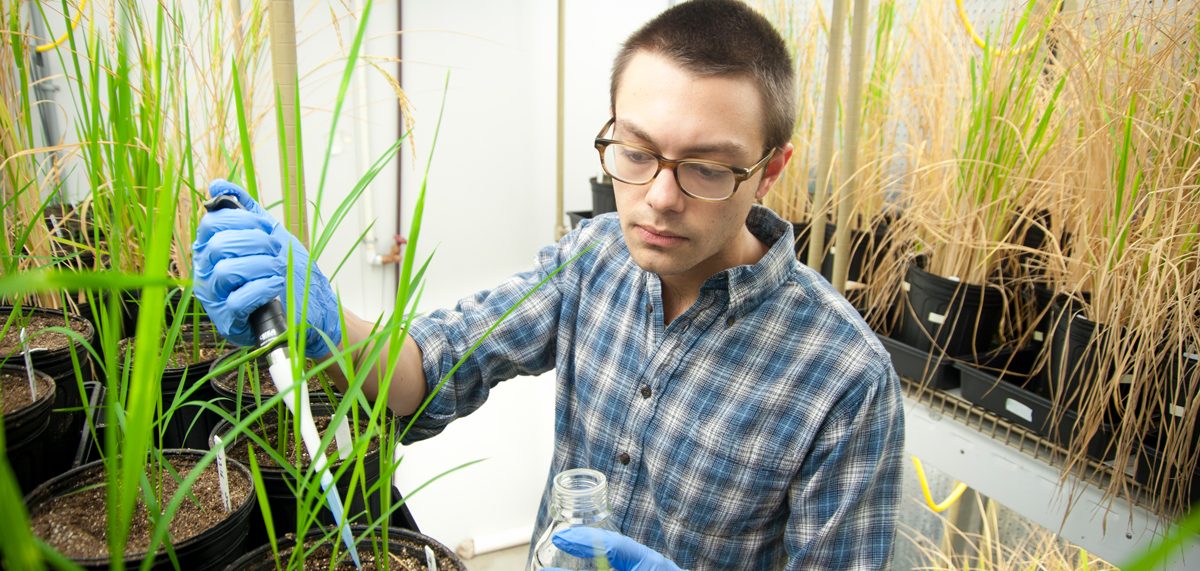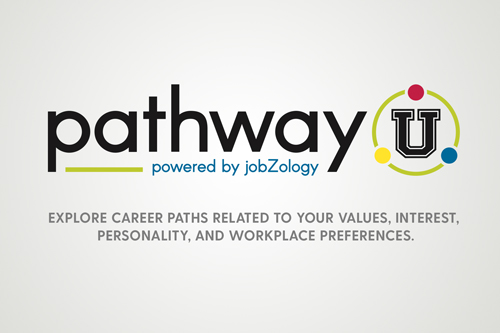
Career Communities

Agriculture & environment
Explore potential careers and develop industry-specific skills for success in the Agriculture & Environment Community. The Career Center offers individual counseling, job and internship resources, networking events and professional development opportunities to help students succeed. Below is a quick snapshot of relevant industries, career outlook, community-specific resources and related Registered Student Organizations (RSOs) to help direct students along their career path in the Agriculture & Environment Community.

OCCUPATIONS & BROAD INDUSTRIES:
- Agribusiness
- Agricultural Policy & Government Affairs
- Agricultural Research & Development
- Animal Care & Research
- Animal Production & Aquaculture
- Atmospheric Science & Meteorology
- Biotechnology
- Conservation
- Crop Production
- Energy
- Environmental Policy & Advocacy
- Environmental Consulting
- Environmental & Outdoor Education
- Environmental Science & Research
- Food Production Systems
- Food Science
- Forestry
- GIS & Geological Sciences
- Marine Science & Research
- Plant Science & Research
- Soil & Plant Science
- Sustainability
- Veterinary Medicine
- Wildlife & Land Management
Agriculture & Environment Resume Samples
Recommended templates, additional samples and information on how to best craft a resume can be found here.
Agriculture Resources:
Environment:
- American Geophysical Union - Learn & Develop Resources
- College of Agriculture & Natural Resources Careers & Internships Page
- College of Agriculture & Natural Resources Extension
- College of Earth, Ocean, & Environment Jobs & Internships Page
- Energy.Gov
- Environmental Protection Agency Careers
- GIS Jobs
- National Oceanic and Atmospheric Association Coastal Management Fellowships
- National Park Service Careers
- Natural Resources Job Board
Opportunities at UD
- Summer Scholars - Application deadline is usually March 1.
- Summer Fellows - Application deadline is usually April 30.
- INBRE (IDeA Network of Biomedical Research Excellence) - Application deadline is usually March 1.
Typical components of REU applications:
CV/Resume
Prepare a good, well-crafted CV or resume. Receive feedback from the Career Center through Drop-In Hours and by uploading your resume for approval on Handshake. For industry-specific feedback, ask a faculty member to review your document.
Suggestion: Every semester, plan on adding at least one bullet point to your CV or resume. Volunteer to do some research even if it is only for an hour per week. Eventually, this will grow and give you content for publications and presentations.
An essay (or a research statement)
If needed for the process, read the position advertisement that you wish to apply for carefully, and identify if they are looking for anything specific in the essay or statement. If no instructions are given, you may consider covering the following:
- Why do you want to apply for the position, or what do you wish to accomplish from participating in the research program? (Possible answers: prepare for graduate school, solve scientifically important problems, apply knowledge gained from coursework to solve real-world problems or to gain research experience.)
- What prior experience do you have with research? If you haven't participated in research before, include relevant course projects or scientific methods with which you are familiar.
- What are your research interests? If you already have research interests, describe them and connect them to topics mentioned in the position description. It is okay to be flexible in describing research interests so that you maximize your chances of getting the position and give yourself an opportunity to learn new things. You may consider seeking advice from a faculty member in your department.
Recommendation letter
Typically students ask course instructors for letters of recommendation. They can speak to your work ethic, but can't always speak to your research experience. To stand out among applicants, volunteer in labs and talk with faculty about your research interests. Once you have some experience, you can ask your research supervisors for letters of support.
Note: For UD Summer Scholars and Fellows programs, you should contact a professor with whom you want to work to discuss a research topic. You will need a letter from that professor to support your application. You may wish to contact multiple professors to see what opportunities are available.
Agriculture
- Ag Ambassadors
- Agricultural College Council
- Alpha Zeta Honors Fraternity
- American Society of Landscape Architects (Student Chapter)
- Animal Science Club
- Collegiate FFA (Future Farmers of America)
- Deep Roots STEM Outreach
- Entomology Club
- Food Marketing Club
- Food Science Club
- Horticulture Club
- Hydroponics Club
- Minorities in Agriculture, Natural Resources & Related Sciences (MANRRS)
- PHS Philadelphia Flower Show Club at UD
- Pre-Veterinary Club
- Wildlife Society
For more Agriculture RSOs, visit the College of Agriculture & Natural Resources webpage.
Environment
- American Meteorological Society Student Chapter
- Earth, Ocean, and Environment Club
- The Environmental Justice Project
- EnvironMentors
- Geology Club
- Students for the Environment
- Teaching Renewable Energy, Environmental Effects, & Sustainability
To find out more about these RSOs and how to get involved, visit Student Central.
Agriculture, Animal and Plant Science, Natural Resources
American Farm Bureau Federation
American Institute of Biological Sciences
American Public Gardens Association
American Society of Animal Science
American Society of Landscape Architects
American Society of Plant Biologists
American Society for Microbiology
American Society for Horticultural Science
Association of Zoos & Aquariums
Biotechnology Innovation Organization
Entomological Society of America
Federation of American Societies for Experimental Biology
International Association for Food Protection
Earth, Ocean, Environment, Meteorology
American Association of Geographers
American Association of Petroleum Geologists
American Geosciences Institute
American Institute of Professional Geologists
American Meteorological Society
Association for the Sciences of Limnology & Oceanography
Association for Women Geoscientists
Imaging & Geospatial Information Society
Institute of Marine Engineering, Science & Technology
National Association of Environmental Professionals
National Oceanic & Atmospheric Administration
Society for Women in Marine Science
Student Conservation Association

CONNECT WITH YOUR COMMUNITY TODAY
- Log in to your Handshake account.
- Choose "Personalize Handshake" at the top of your home screen.
- Choose from 8 different industry-focused communities.
- Start learning about jobs, internships, and events that interest you.
TOP EMPLOYERS:
- AECOM
- Bloom Energy Corporation
- BluePearl Veterinary Partners
- Delaware Department of Natural Resources & Environmental Control (DNREC)
- Delaware State Parks
- Duffield Associates
- FMC
- Frontier Scientific
- Longwood Gardens
- National Oceanic & Atmospheric Administration (NOAA)
- Perdue Farms
- Tri-State Bird Rescue & Research
- US Department of Agriculture (USDA)
- US Environmental Protection Agency (EPA)
- US Fish & Wildlife Service
- University of Delaware
- University of Pennsylvania
-
7 Expert Tips for Career Success
February 28, 2024 | Written by Jessica DowneyUD Career Center staff share seven valuable tips for securing your career success. -
How UD CAMI is Breaking the Barriers to Student Success
March 14, 2023 | Written by Jessica DowneyMeet the dynamic duo behind the UD Career Center's newest initiative to serve historically underrepresented students. -
From the graduation stage to the workplace
May 23, 2022 | Written by Jessica SmithSenior Aidan McCann will begin his role as a client service associate at JPMorgan Chase & Co. just one week after graduating from UD.
The UD Career Center is part of the Division of Student Life, which advances equity and inclusion, deepens student learning and drives holistic development through education, experiences and communities.


